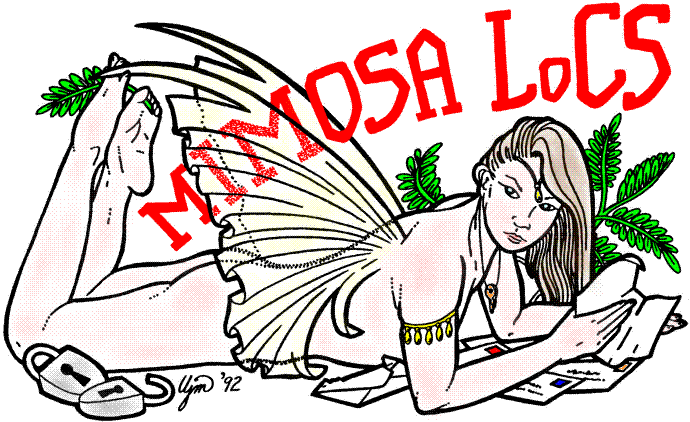 {{ - - - - - - - - - -
Lloyd Penney, Brampton, Ontario, Canada {{ {{ - - - - - - - - - -
George Flynn, Cambridge, Massachusetts {{  - - - - - - - - - -
Darroll Pardoe, Hoole, Chester, England  {{ {{ 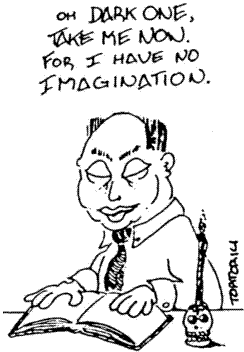 - - - - - - - - - -
Gregg Calkins, Jackson, California - - - - - - - - - -
Martin Morse Wooster, Silver Spring, Maryland - - - - - - - - - -
Terry Jeeves, Scarborough, North Yorkshire, United Kingdom {{ reaching Boston. 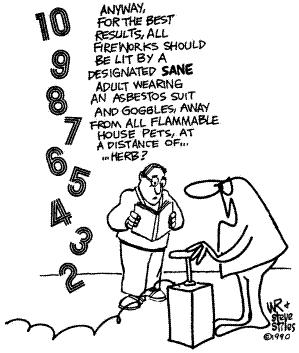 - - - - - - - - - -
Eric Mayer, Rochester, New York 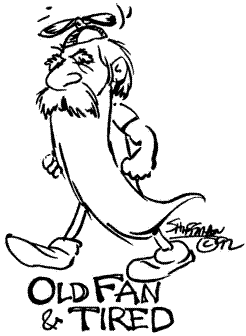 # # # #
 - - - - - - - - - -
Ian Gunn, Blackburn, Victoria, Australia - - - - - - - - - -
Dal Coger, Memphis, Tennessee - - - - - - - - - -
Harry Warner, Jr., Hagerstown, Maryland - - - - - - - - - -
Dale Speirs, Calgary, Alberta, Canada - - - - - - - - - -
Hans Persson, Linköping, Sweden - - - - - - - - - -
Pat Sims, Cincinnati, Ohio - - - - - - - - - -
Eve Ackerman, Gainesville, Florida 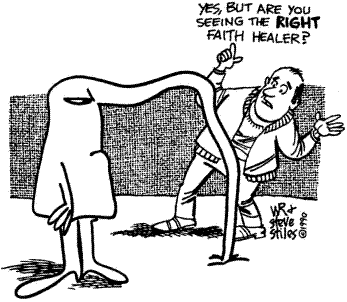 {{ - - - - - - - - - -
Richard Brandt, El Paso, Texas - - - - - - - - - -
David Thayer, Euless, Texas - - - - - - - - - -
Vincent Clarke, Welling, Kent, United Kingdom # # # #
# # # #
- - - - - - - - - -
Alan Stewart, Melbourne, Victoria, Australia - - - - - - - - - -
Alan Sullivan, London, United Kingdom 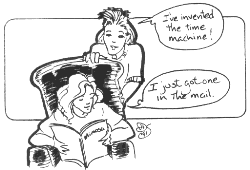 - - - - - - - - - -
Mike Glicksohn, Toronto, Ontario, Canada - - - - - - - - - -
Buck Coulson, Hartford City, Indiana - - - - - - - - - -
David Bratman, San Jose, California - - - - - - - - - -
Mark Nelson, Leeds, West Riding, United Kingdom - - - - - - - - - -
Chuch Harris, Daventry, Northants, United Kingdom - - - - - - - - - -
Robert Bloch, Los Angeles, California - - - - - - - - - -
We Also Heard From: Harry Andruschak; Pamela Boal; Lester Boutillier; Ned Brooks; Gary Brown; Chester Cuthbert; Richard Dengrove; Cathy Doyle; Sharon Farber; Don Fitch; Brad Foster; Benoit Girard; John Guidry; Rob Hansen; Lynn Hickman; Craig Hilton; Steve Hughes; Alan Hutchinson; Ben Indick; Ruth Judkowitz; Irv Koch; Dave Kyle; Ken Lake; Fred Lerner; Fred Liddle; Guy Lillian III; Ethel Lindsay; Adrienne Losin; LynC; Mark Manning; Norm Metcalf; Bruno Ogorelec; Marc Ortlieb; Karen Pender-Gunn; Curt Phillips; Derek Pickles; David Rowe; Julius Schwartz; Bob Shaw; Noreen Shaw; Roger Sims; Steve Sneyd; Graham Stone; Roy Tackett; Michael Waite; Kate Waterous; Taral Wayne; Roger Weddall; and Henry Welch. We also received a taped letter from Eric Bentcliffe, which arrived about a month before he died. Fandom will miss him. - - - - - - - - - -
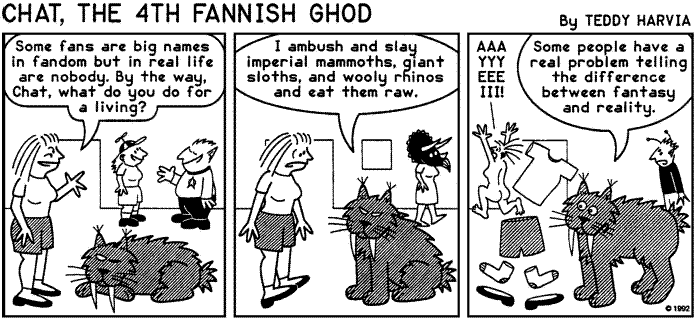 Title illustration by Linda Michaels Chat cartoon by Teddy Harvia. Other illustrations by Alexis Gilliland, Phil Tortorici, William Rotsler & Steve Stiles, Stu Shiffman, Brad Foster, and Diana Harlan Stein |


|